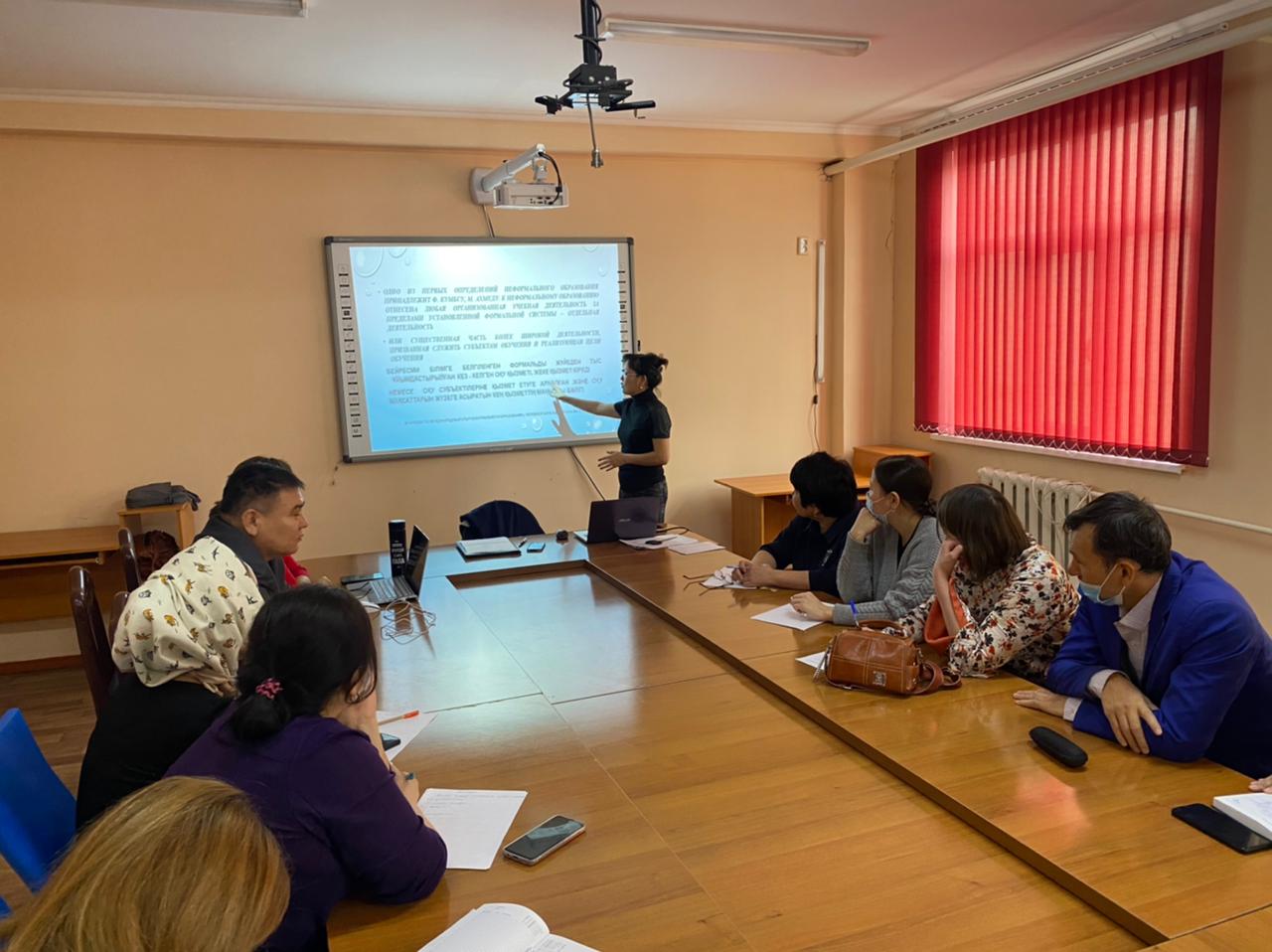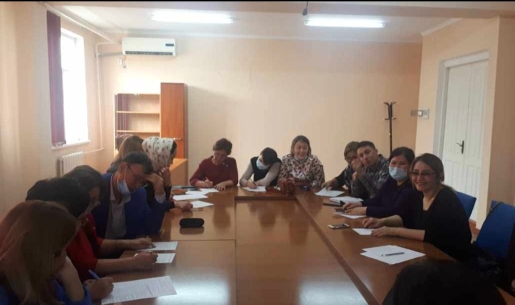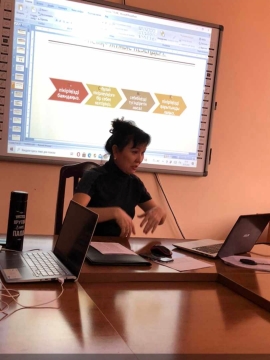News
Seminar "Non-formal education"
A seminar "Non-formal education" was held at the Faculty of History and Pedagogy. The seminar was attended by the dean of the faculty K. M. Urazbayev, Deputy Dean for Educational Work and Social Work G. T. Malgaydarova and teaching staff of the departments of the faculty. The seminar was conducted by Ph.D., Associate Professor of the Department of "Modern Pedagogy and Psychology" Makhmutova Kulsara Isakhanovna.
Non-formal education includes any educational activity, individual activity organized outside the established formal system, or is an important part of a broad activity designed to serve the subjects of learning and realize the learning goals.
Non-formal education is a process that usually does not provide for the issuance of a document, which is carried out in educational institutions or public organizations, clubs and circles, as well as during individual lessons with a tutor or coach.
Any organized and continuous educational event held both in an educational institution and outside of it and covering people of all ages.
Non-formal education programs are not necessarily built into one system and may have different durations.
Non-formal education involves the organization of forms of education that are not part of the official educational programs. In particular, professional development programs, professional retraining, vocational training, courses, lectures, seminars and trainings, including online. Recognition of the results of non-formal education is carried out by educational organizations as an opportunity to form an individual learning trajectory
Description of non-formal education:
- orientation to specific educational needs of various social, professional, demographic groups of the population;
- lack of forced character, reliance on adults' own motivation;
- high personal significance of training;
- internal responsibility of students for the result of educational activities;
- the development of individual industries that provide favorable prerequisites for a decent life, successful intervention in the life of society and work;
- development of mobility in the rapidly changing conditions of the modern world;
- flexibility in methods of organization and training; high level of activity of students;
- important criteria for the listeners themselves.










